Damsa is only 16 years old.
If she lived anywhere else in the world, she would probably be in high school, looking forward to applying to university. She might have dreams of becoming a doctor or a lawyer someday. She might enjoy shopping or going to the park with her friends on the weekends.
But Damsa lives in Afghanistan, and she feels trapped.
It’s not hard to see why. She was forced to abandon her education and her dreams at a young age when she was sold into a marriage with a man much older than herself, who already had two wives. And now, with the restrictions on women in Afghanistan becoming increasingly severe, Damsa can feel the walls closing in around her.
“For me, being a girl in Afghanistan is like being a bird in a cage that wants to fly but gets cut off when it tries … That is why every morning, I wake up with a heaviness in my heart and a question: ‘What would it be like if I could break the cage and fly far away from here?’”
– Damsa, 16
Damsa’s name was changed to protect her — in fact, every woman’s name you’ll read in the next few minutes was changed for safety. That’s because identifying them for speaking out about their experiences could put them in very real danger.
Women in Afghanistan have not only been robbed of their rights to work, education, and independence; they’ve also been robbed of their voices.
So, this Women’s History Month, we want to shine a light on what it’s really like to be a woman in Afghanistan. And nobody can speak to this experience better than the women themselves.
Women in Afghanistan Have Lost Their Right to Work
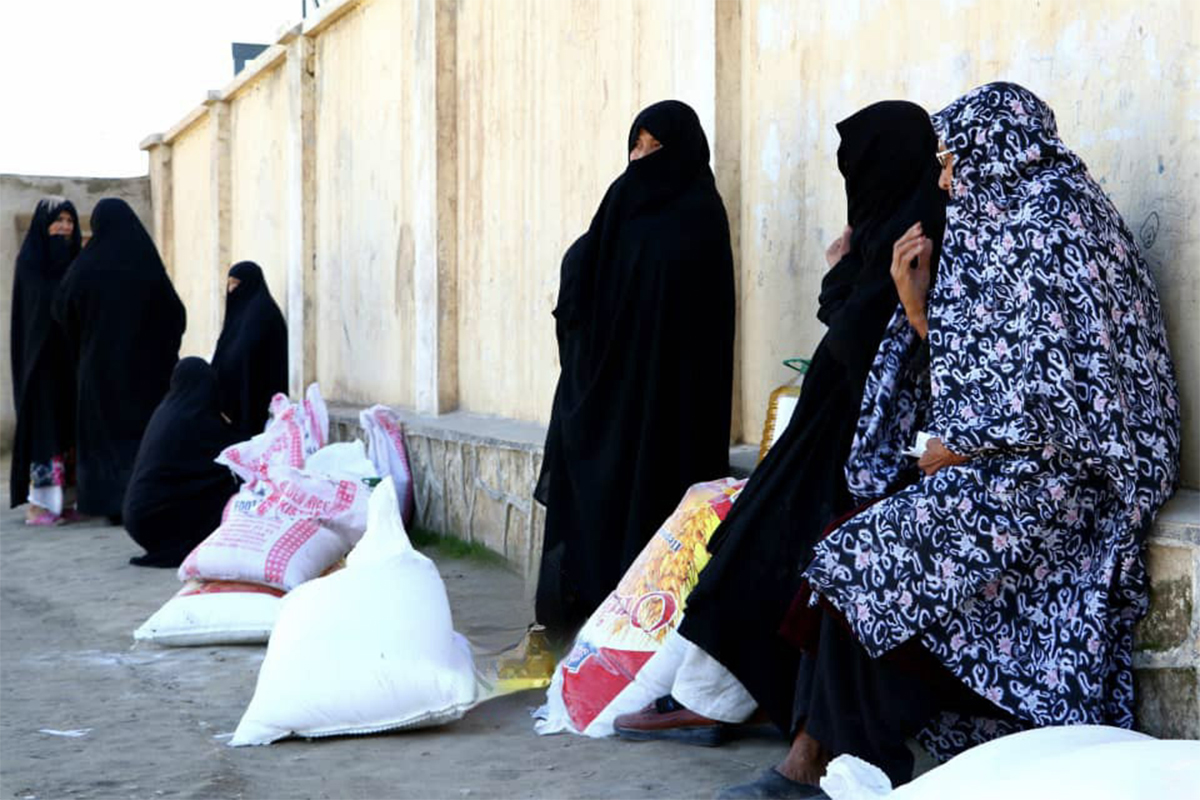
Most Afghan women can no longer work to support themselves or their families
Since seizing power in August 2021, the Taliban has been systemically stripping women of nearly all their rights. The Taliban has issued over 80 new mandates since their rise to power, over half of which are directed at women. Two years later, the result is that women have been all but eliminated from public life.
A year after the Taliban’s takeover, they issued an order that forbade women from choosing professions in agriculture, mining, civil engineering, veterinary medicine, and journalism. About six months later, women were also forbidden from working in NGOs (non-governmental organizations).
In July 2023, the Taliban ordered the closure of all beauty salons. By that point, boutiques and salons were one of the only remaining ways for women to earn an income after being banished from nearly every facet of the workforce … and now they’re gone, too.
For Nahal, a widow responsible for providing for her five children, this new law had a devastating impact. There are no work opportunities for her, so she takes any job she can find that will pay her under the table. It’s not enough, though, and she knows that the moment her efforts are discovered, she and her children will suffer.
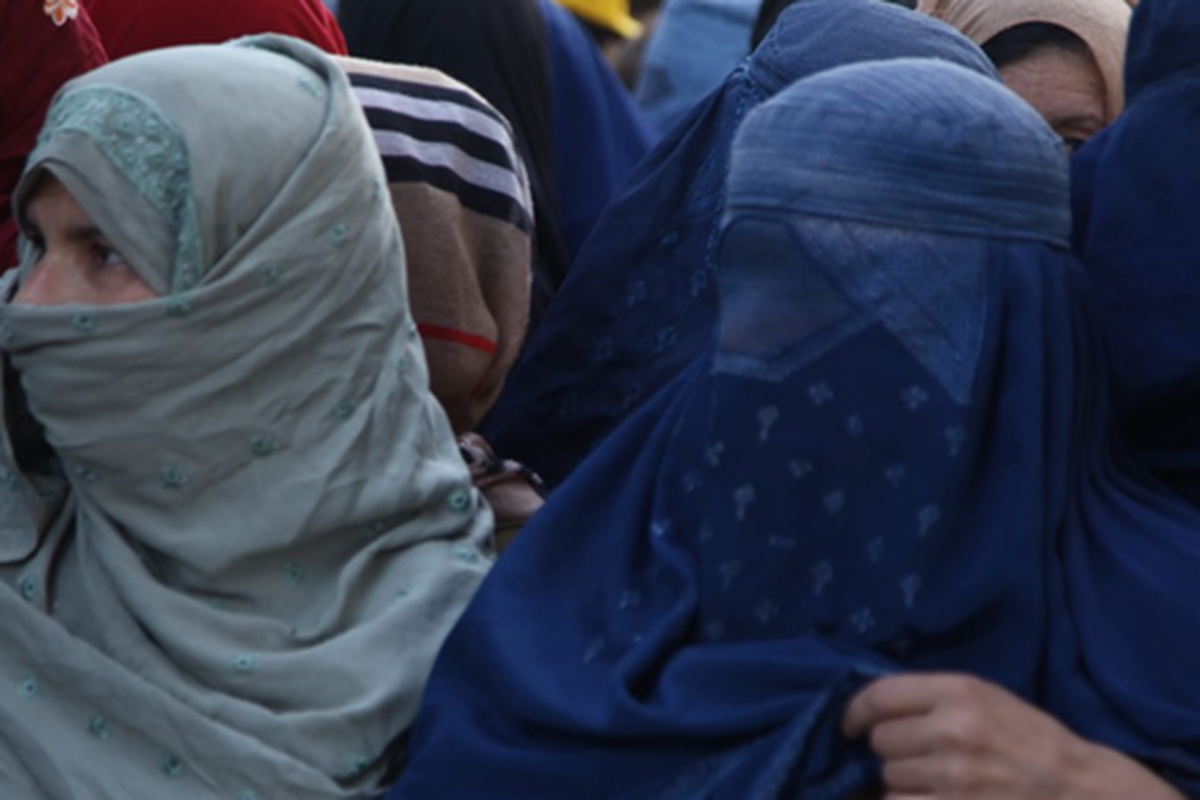
The Taliban’s new mandates against women are stripping them of their independence
But what other option does she have when the alternative is watching her children slowly starve to death?
Kaameh, another mother living in Afghanistan, said, “Girls who wish to work are risking their lives.”
That’s the only option Nahal has to care for her family. She must risk her life.
“I am scrambling to find ways to feed my children. I am working surreptitiously in peoples’ houses with the anxiety of not knowing if we’ll have enough to eat tomorrow, or if my secret attempts to work will bring harm to my family … [it] is a constant torment.”
– Nahal, 32
The impact of Nahal’s boutique closing was more than financial. Nahal felt like part of her identity had been taken away. She felt trampled … forced to relinquish her role in society as she was denied her right to work and provide for her family.
“When [my boutique] was closed down, I felt as if I had lost my identity; they rendered women invisible and deemed us unworthy of contributing to the society,” Nahal said.
Invisible and unworthy of contributing to society.
The tragic truth is, that’s exactly how the Taliban views women. And with the power they hold, they can manifest those views any way they see fit, effectively destroying the livelihoods of women like Nahal. Women who are created in the image of God … women who are both worthy and capable of so much more.
Women Are Banned from Most Educational Opportunities in Afghanistan
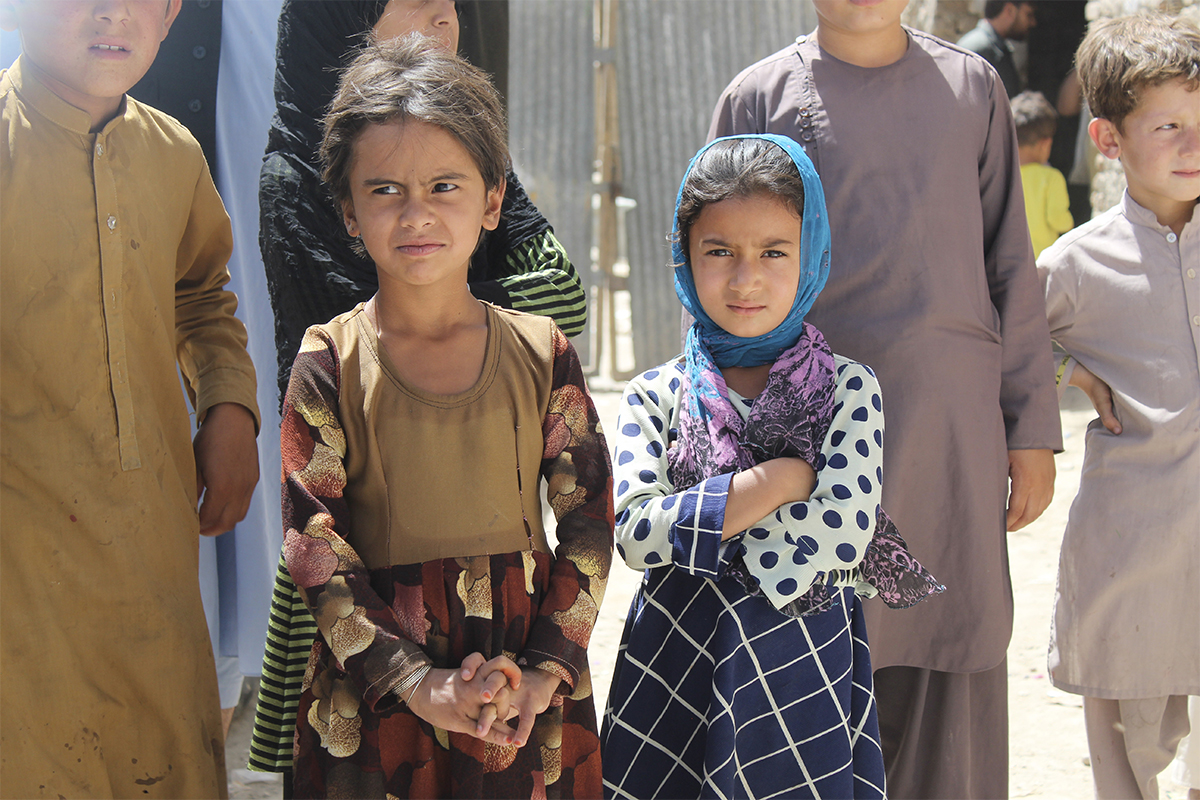
Afghan girls can no longer attend school past sixth grade
One of the first things the Taliban did when it came to power was prohibit girls from attending secondary school. Now, Afghanistan is the only country in the world to restrict women’s education.
Without a way to earn an education, girls are increasingly at risk of exploitation or being sold into marriage. For 22-year-old Maryam, it feels like her life is over before it’s even started. She knows that restricting opportunities for women to work and attend school will only make things worse in the long run. As younger girls grow up under the Taliban’s influence, they won’t know they deserve to have their own dreams and pursue them.
“Being a woman in Afghanistan is like grappling with a future dimmed before it even begins. It is an everyday anxiety of knowing we are being denied of our right to education, to work, to growth, and other opportunities that every human being is entitled to.”
– Maryam, 22
Women’s literacy rates in Afghanistan have doubled since 2001, and the number of girls attending school multiplied 20 times … but that progress came to an abrupt halt in 2021. The Taliban’s restriction on women’s education set the nation back two full decades in a matter of days.
In fact, women’s rights as a whole have regressed 20 years since the Taliban’s 2021 takeover. And the Taliban didn’t stop with the secondary school ban.
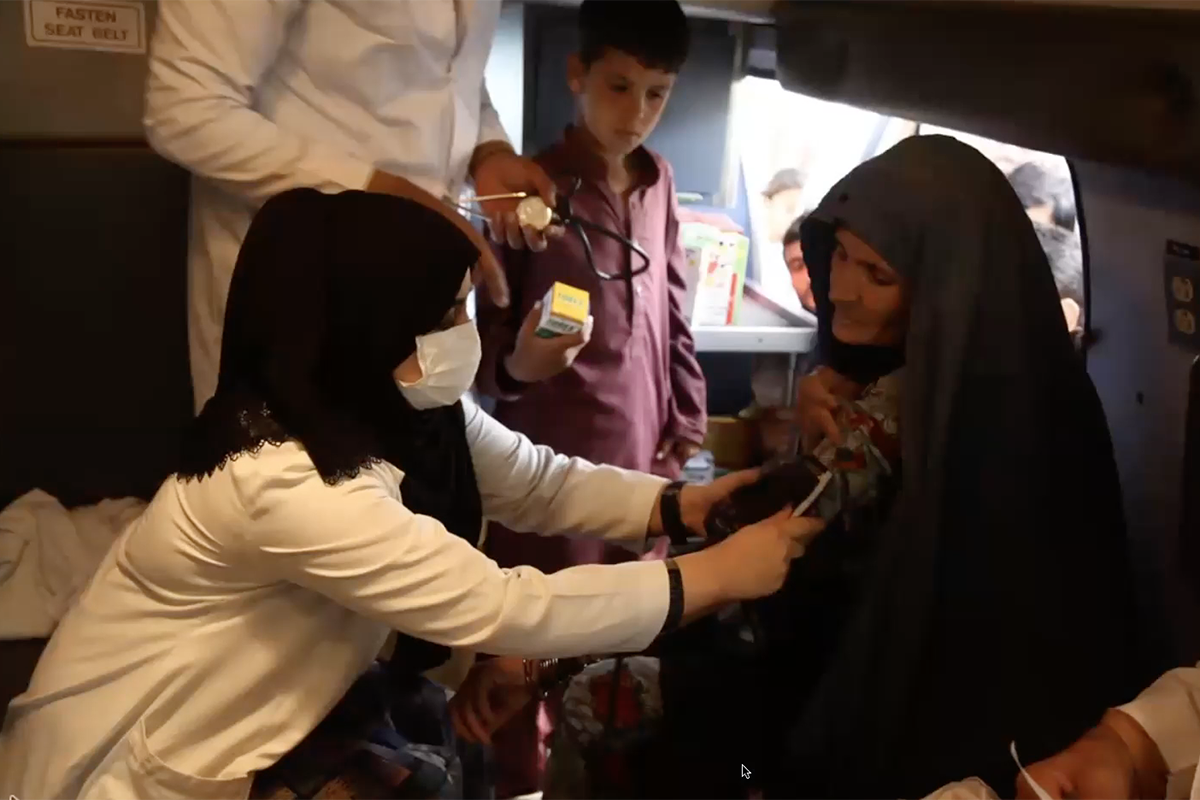
The Taliban’s ban on women attending universities will likely create a public health crisis
A year and a half after seizing power, the Taliban expanded the restrictions on women’s education to ban women from attending public and private universities. With both secondary and higher education gone, girls can only attend school through sixth grade.
Healthcare is one of the few job sectors still open for women, but education is required to be employed as a doctor or a nurse. If the upcoming generation of women is not educated, Afghanistan could soon be facing a healthcare crisis as a direct result of the Taliban’s oppression of women.
Women in Afghanistan Cannot Live Independent or Public Lives
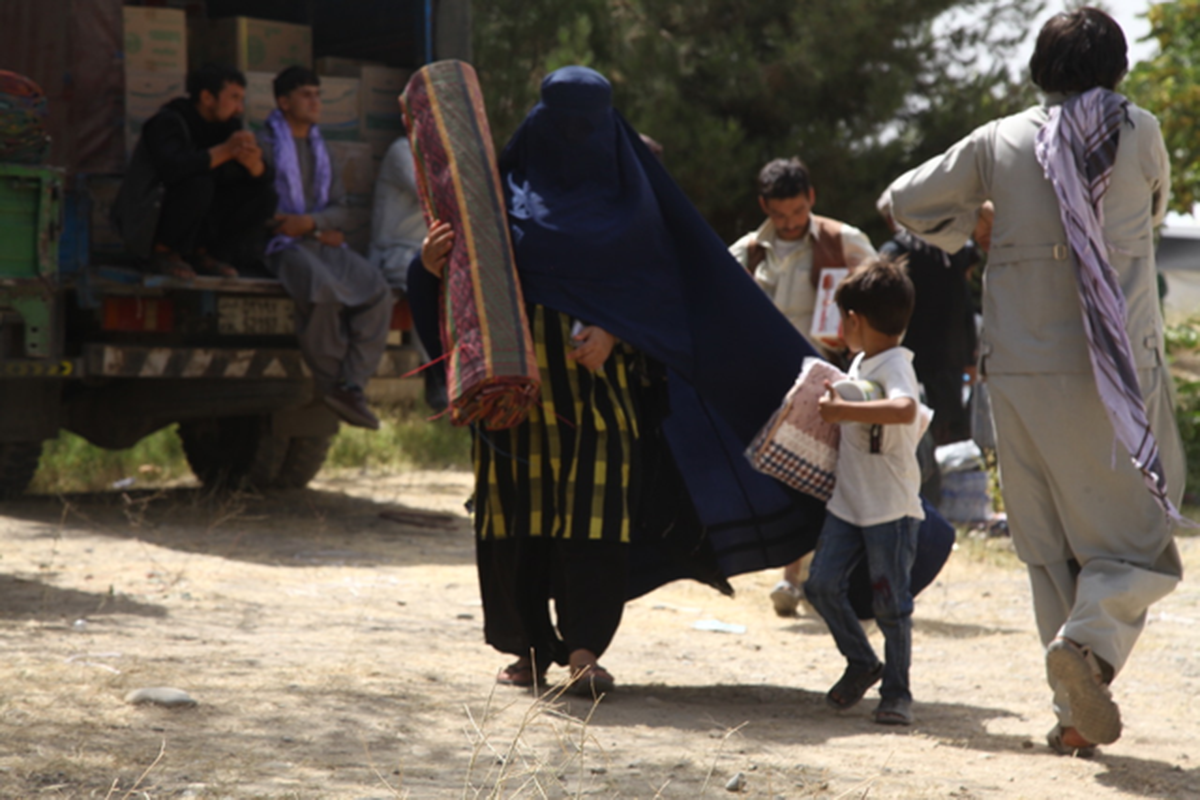
Afghan women can’t go out in public without a male chaperone
It’s hard to believe that the Taliban could take anything else from women. But with the current laws, women cannot travel alone or lead independent lives. Women aren’t just banned from schools; they’re also banned from public baths, parks, and gyms. When they dare to step outside their homes, they can’t go anywhere without a male chaperone.
Remember 16-year-old Damsa? This restriction means she can’t go anywhere without her husband or another qualifying male chaperone. Is it any wonder she feels like a bird trapped in a cage?
And think about Nahal, who was forced to close her boutique. She’s a widow. She has no husband to escort her out and about. Simply leaving her home alone to try and provide for her children presents a tremendous risk.
For Hajira, the lack of freedom is pervasive, impacting every area of her life.
“Before the Taliban, I was financially independent,” Hajira said. “There is freedom, but now I am discouraged. My behavior, my accounts, my SIM card, and everything else are under Taliban control … seeing fewer girls around hurts, and I feel hopeless.”
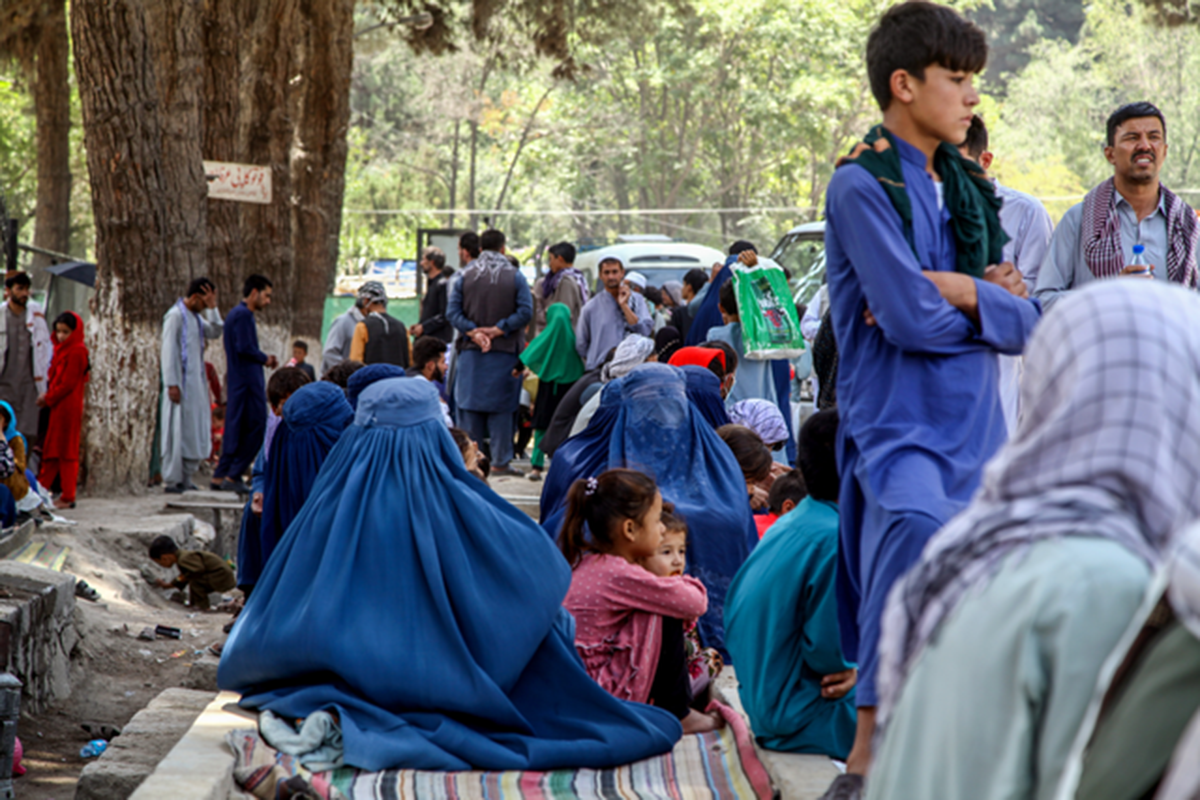
Afghan women risk arrest if they don’t cover themselves entirely in public
Women are also required to cover up from head to toe. There are reports of the Taliban throwing girls out of school for wearing pants underneath their clothing or for showing a few inches of their ankles — or for simply not wearing socks. But as 17-year-old Jamila witnessed, even women following the Taliban’s stringent dress code can be targeted. The Taliban does not have to justify its oppression, and the consequence is widespread fear.
Even if women could leave their homes alone, girls like Jamila are too afraid. Jamila knows she could be arrested for no reason because she’s seen it happen before.
“… I saw a disturbing scene: girls and women were being arrested by a bunch of Taliban, even though they were fully covered. I was so shaken … I still shudder at the mere thought of going outside alone myself or running into the Taliban, like a leaf shook by an autumn breeze.”
– Jamila, 17
Women in Afghanistan are confined to the shadows, and they don’t see a way out. These women are fighting for their rights however they can, but for many, it’s all they can do to survive one day at a time.
“There’s no such thing as women’s freedom anymore,” said Mahbouba Seraj, a 2023 Nobel Peace Prize nominee and Afghan women’s rights activist. “The women in Afghanistan are being slowly erased from society, from life, from everything — their opinions, their voices, what they think, where they are.”
How You Can Help
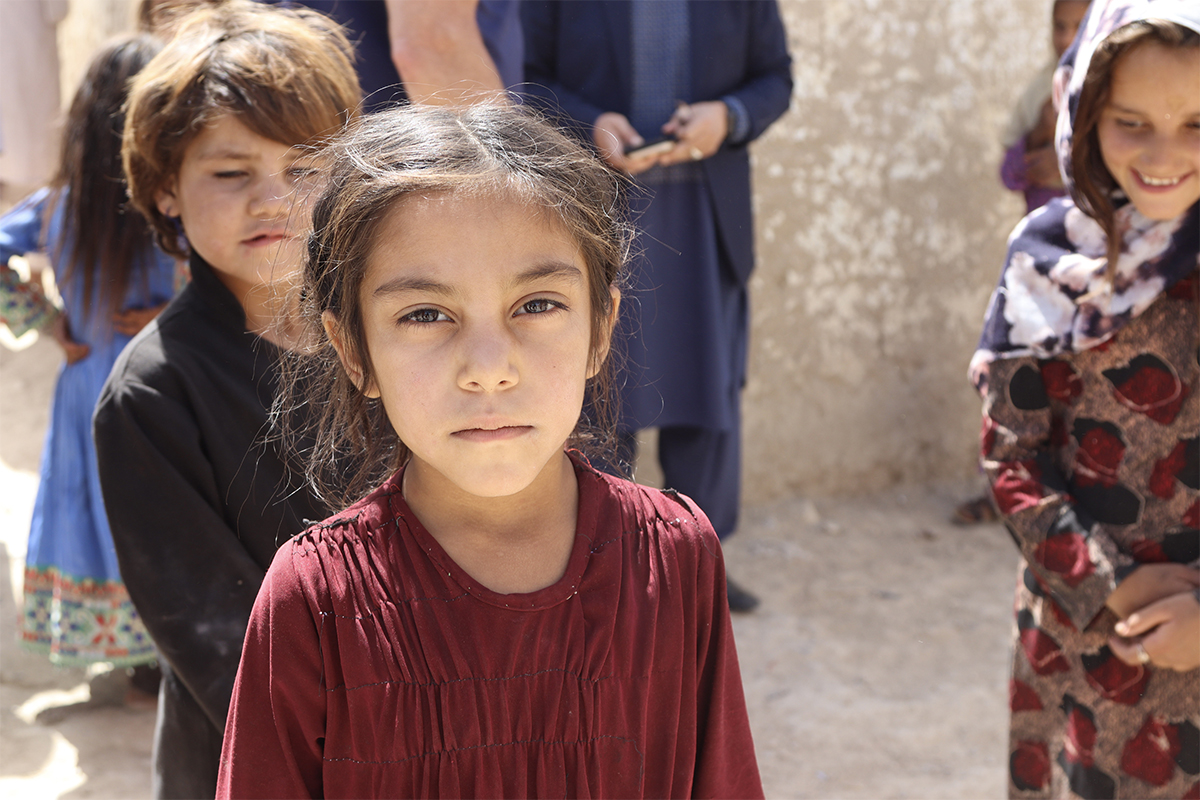
You can provide help and hope for Afghan women and their families
What’s happening in Afghanistan is an extreme violation of human rights. We might not be able to stop the Taliban’s oppression of women or change their laws on our own, but we can still help women in Afghanistan. Here are four simple ways you can make a difference in their lives from right where you are:
1. Pray — Remember the women of Afghanistan in your prayers. Pray that God would open a door for Afghan women to reclaim their rights and that the world would join them in their fight for freedom from oppression.
2. Listen — When Afghan women like Damsa, Nahal, Maryam, and Jamila bravely share their stories and experiences under the Taliban, listen with an open heart and seek to understand.
3. Share — Lift up these women’s stories by sharing them on social media, discussing these issues with family and friends, and using whatever platform God has given you to raise awareness.
4. Give — If you’d like to do even more, you can give a financial gift to help support displaced Afghans struggling to survive. Your gift will provide urgently needed supplies like food, blankets, and medical supplies.
As you celebrate Women’s History Month, don’t forget about the women of Afghanistan. If you do nothing else, please keep them in your prayers as they endure relentless oppression. Pray that God would use this situation to reveal Himself to these women and provide them with supernatural peace, comfort, and strength.




